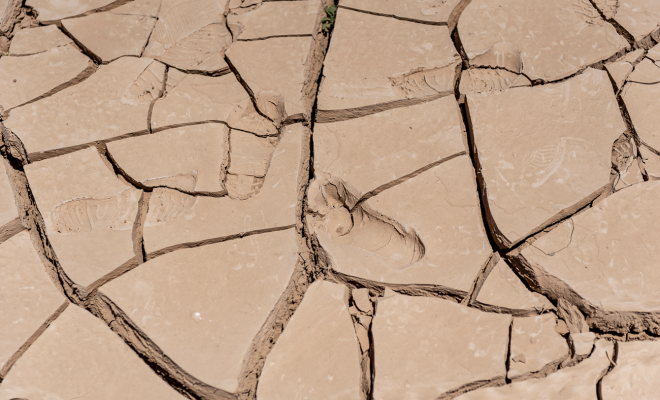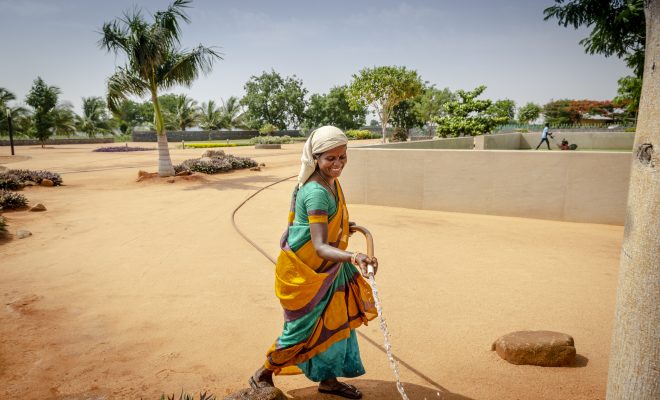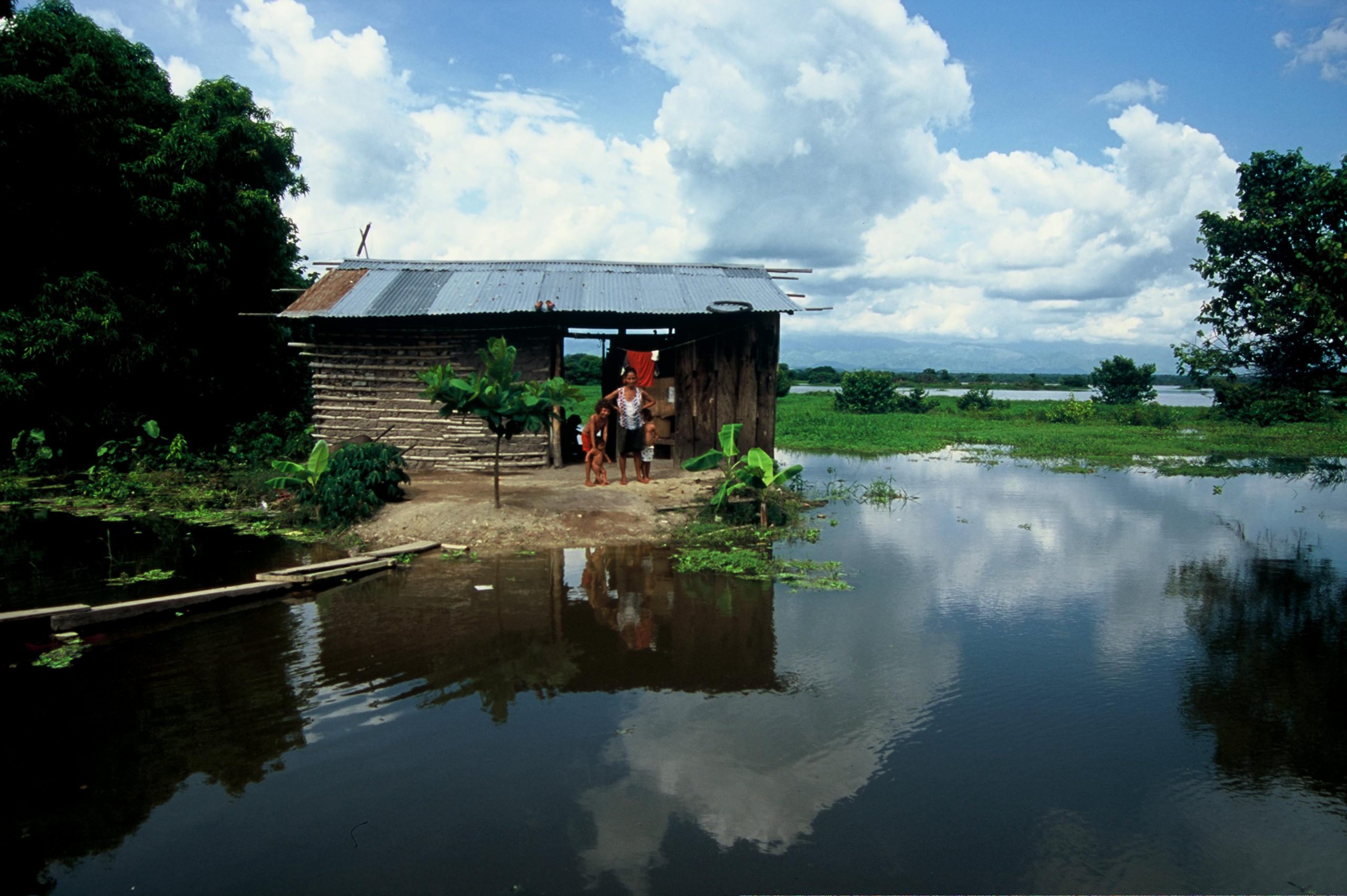
The perceived increase in atmospheric temperature, irregular rainfall, droughts, floods…have led to a change in public opinion on how to perceive the importance of water on the planet. © Scott Wallace / World Bank
Are we more aware of the importance of water for the future of humanity? According to UNESCO and UN-Water, the answer is yes, we are increasingly aware and this opens a door to hope. In the United Nations World Water Development Report 2020 Water and Climate Change, both institutions highlight a fact claimed by climatologists, hydrologists and water resource experts: the international community has started to see water as a “connector” between the global commitments adopted with regard to climate and the environment. This is good news.
In the report’s foreword, Audrey Azoulay, UNESCO’s Director General, points out that the word “water” rarely appears in international climate agreements, “despite the fact that it plays a key role in issues such as food security, energy production, economic development and the reduction of poverty.”
This “forgetfulness” will soon be history. The 2030 Agenda and the 17 Sustainable Development Goals (SDG), the Paris Agreement on Climate Change and the Sendai Framework for Disaster Risk Reduction, which are the current agreements governing international cooperation, place special emphasis on closing the knowledge and communication gaps between water managers and climate scientists. These agreements promote coordinated mitigation and adaptation measures that recognize and understand the improvement of water management, an essential tool to face the climate crisis.
It is logical that this is the case. In these last few years, international awareness of the importance of including water as a key factor in the coordination of any international strategy has escalated. The perceived increase in atmospheric temperature, irregular rainfall, droughts, floods and, above all, the water supply problems suffered in many large cities have led to a change in public opinion on how to perceive the importance of water on the planet. The current Covid-19 pandemic is proving that, without access to water and sanitation, hygiene and health are impossible.
Water, communicator of the environmental crisis

Water is the medium through which societies experiment the most severe impacts of climate change. © Carlos Garriga/ We Are Water Foundation
Alterations of the hydrological cycle are one of the factors that have contributed most to raising awareness of climate change all around the world, since water is the medium through which societies experiment the most severe impacts of climate change. Only 2.5% of the existing water on Earth is fresh and only 0.77% is accessible to humans. This is the water we use to live, and it is easy to deduce how this tiny percentage depends on the alterations of the water cycle in the planet caused by the remaining 99.23%.
This water will practically remain the same on the planet, but climate alterations cause it to do so differently in space and time. Droughts and floods are an example of this and climate change is polarizing them. Also fresh water pollution has always been more obvious to human perception than that of the sea, although the latter has been overwhelming in recent years. Scientists have explained that the health of salt water in the oceans is vital for the absorption of atmospheric carbon and the survival of marine life, one of the pillars of global food security.
“One Planet, One Ocean” has been the slogan of the UNESCO campaign, to which we can now add “one water”: anything affecting the sea will also affect clouds, rivers and aquifers; on it depends that 7.8 billion people can have water to drink, wash themselves, cook, farm and water their livestock. Beyond these basic needs, our dependence on the natural hydrological cycle encompasses all our activity: the sustainability of urban and rural settlements, energy production, industrial development, economic growth and ecosystems are all dependent on water and therefore, are vulnerable to the impacts of climate change.
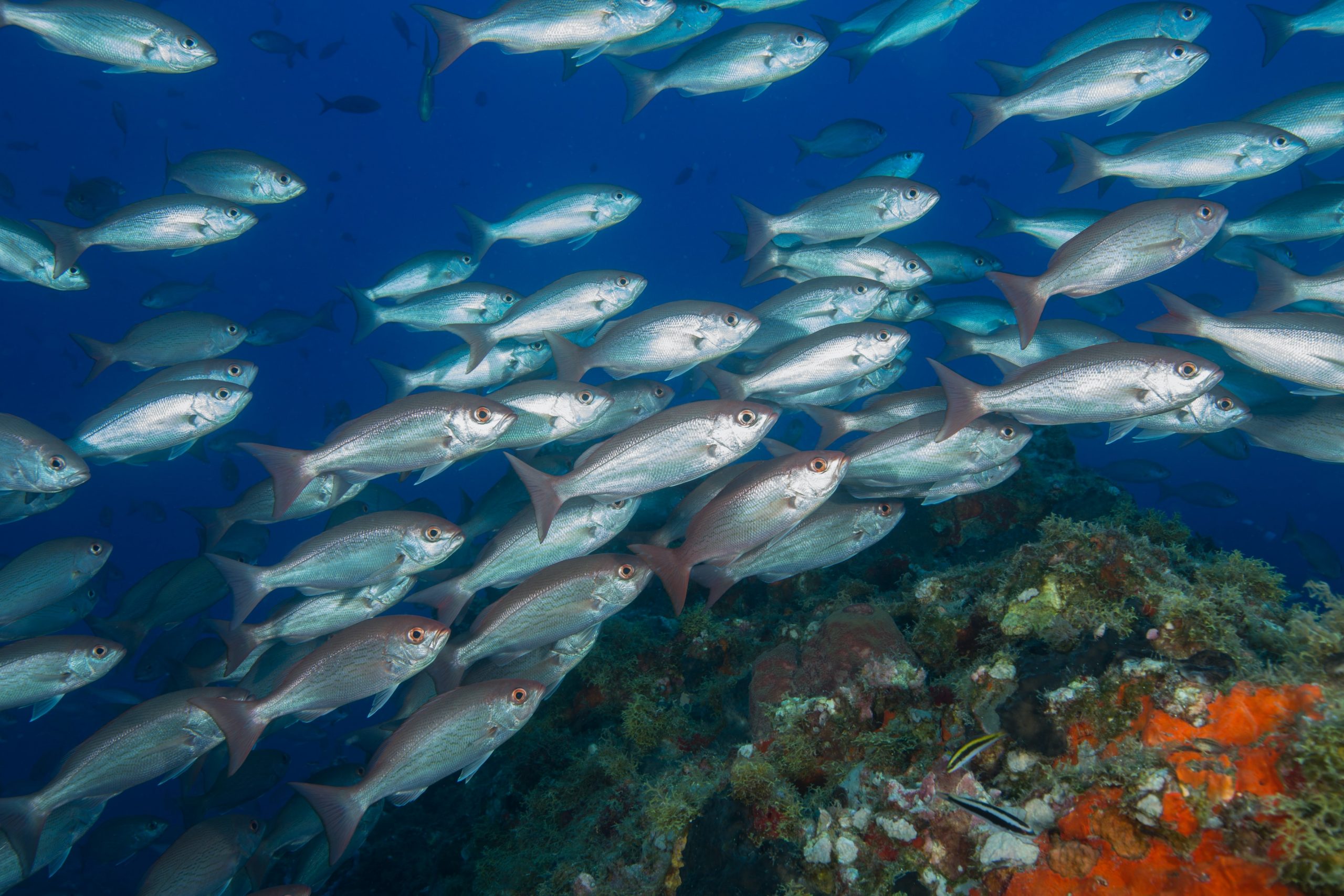
The health of salt water in the oceans is vital for the absorption of atmospheric carbon and the survival of marine life, one of the pillars of global food security. ©noaa -unsplash
Water, a key player at COP26 in Glasgow
COP26 will be held from the 1st to the 12th November 2021 in Glasgow (Scotland), after the crisis generated by coronavirus has led to its postponement for one year. Contrary to what happened five years ago at the COP21 in Paris, water will have a prominent role in the proposal of governance agreements and policies.
It is urgent that this be the case. Currently, some 2.2 billion people lack safe water and 4.2 billion people, 55% of the world’s population, lack an adequate sanitation system and around 4 billion people currently experience a severe physical shortage of water during at least one month per year. About one million animal and plant species are facing extinction, and it is freshwater species that are most affected, decreasing by 84% since 1970.
Water as a solution
In view of this discouraging scenario, the UNESCO report provides a ray of hope by emphasizing that water does not have to be a problem but can be part of the solution since, as the experience of recent years has shown, the way water is managed influences the factors that cause climate change.
Many scientists and experts in water management argue that we need to change the line of thought that considers that the mitigation of global warming is mainly about obtaining energy, while the adaptation is mainly a matter of water management.
Indeed, the improvement of water management needs to adapt to climate change (fighting the effects of floods, reducing water stress for agriculture, industry, etc.),but water management also needs to play a key role in the mitigation of global warming. Specific interventions such as the protection of wetlands, the development of conservation agriculture and the massive adoption of nature-based solutions can significantly increase the capture of atmospheric carbon in biomass and soils; on the other hand, efficient treatment of wastewater reduces the greenhouse gas emissions and can also produce biogas as a source of renewable energy.
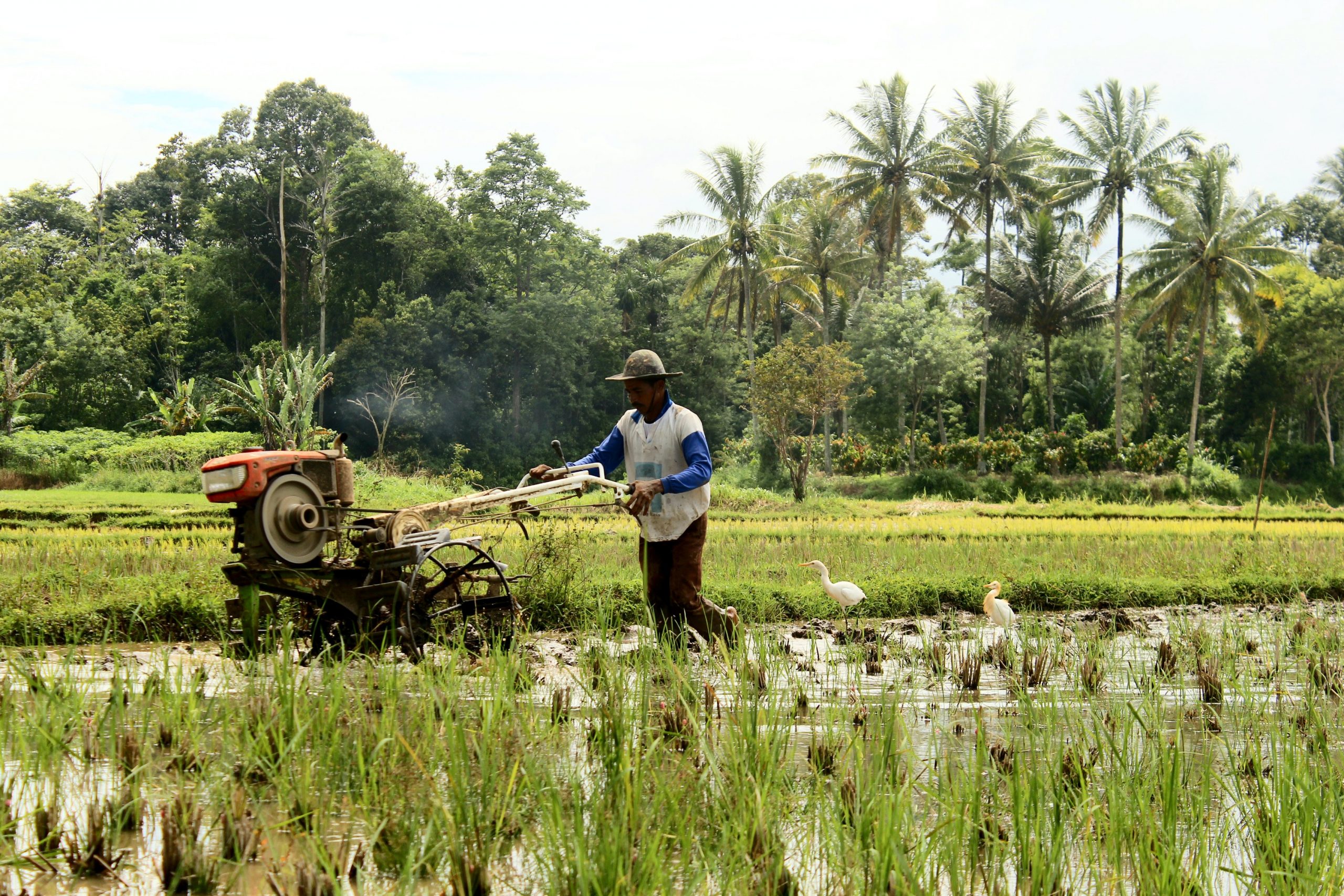
The improvement of water management needs to adapt to climate change. ©defika-hendri-unsplash
What should we change?
Both environmental scientists and hydrologists believe that turning this knowledge into action is entirely possible; however, this will require creating a suitable global environment so that positive transformative changes can occur.
First, cooperation must be activated, especially at the regional and cross-border levels. Understanding water resources issues from a basin perspective is essential to manage water efficiently, improve communication, data collection and exchange and sectoral cooperation. All this creates a favorable foundation to attract investments and improve the access to financing mechanisms, which is vital in countries with the poorest economies.
For many years now, experts have been advocating transboundary cooperation for any solution to any problem that affects water resources. It should be noted that at least 148 countries have at least one transboundary river basin. For this reason, a joint understanding between governments and institutions is necessary to achieve a water supply that ensures the fight against hunger and poverty, social justice and gender equality.
These cooperation mechanisms offer potential opportunities to further advance the adaptation and mitigation components of climate change in water development and vice versa. In fact, many experts see no other way to do this.
Historically, according to World Bank data, the management of water resources, as well as the water supply and sanitation have been significantly under-funded. Globally, most of the available funding has gone to climate change mitigation to the detriment of water-related projects. The UNESCO report points this out and defends that connecting water to climate change would allow countries to make the most of additional resources to face climate and hydric challenges from a single perspective, making it much more effective and attractive to investors.
Combining the fight for climate change adaptation and mitigation through water benefits water resources management and improves the delivery of water and sanitation services. It also contributes directly to combating both the causes of global warming and its dire consequences such as famine and migration, and reduces the risks of disasters.
There are solutions. After the certain discouragement caused by the COP25 in Madrid and the gloomy global outlook due to Covid-19, this vision of water as a tool to face the climate crisis and as a generator of wealth is a ray of hope to attain all Sustainable Development Goals.



